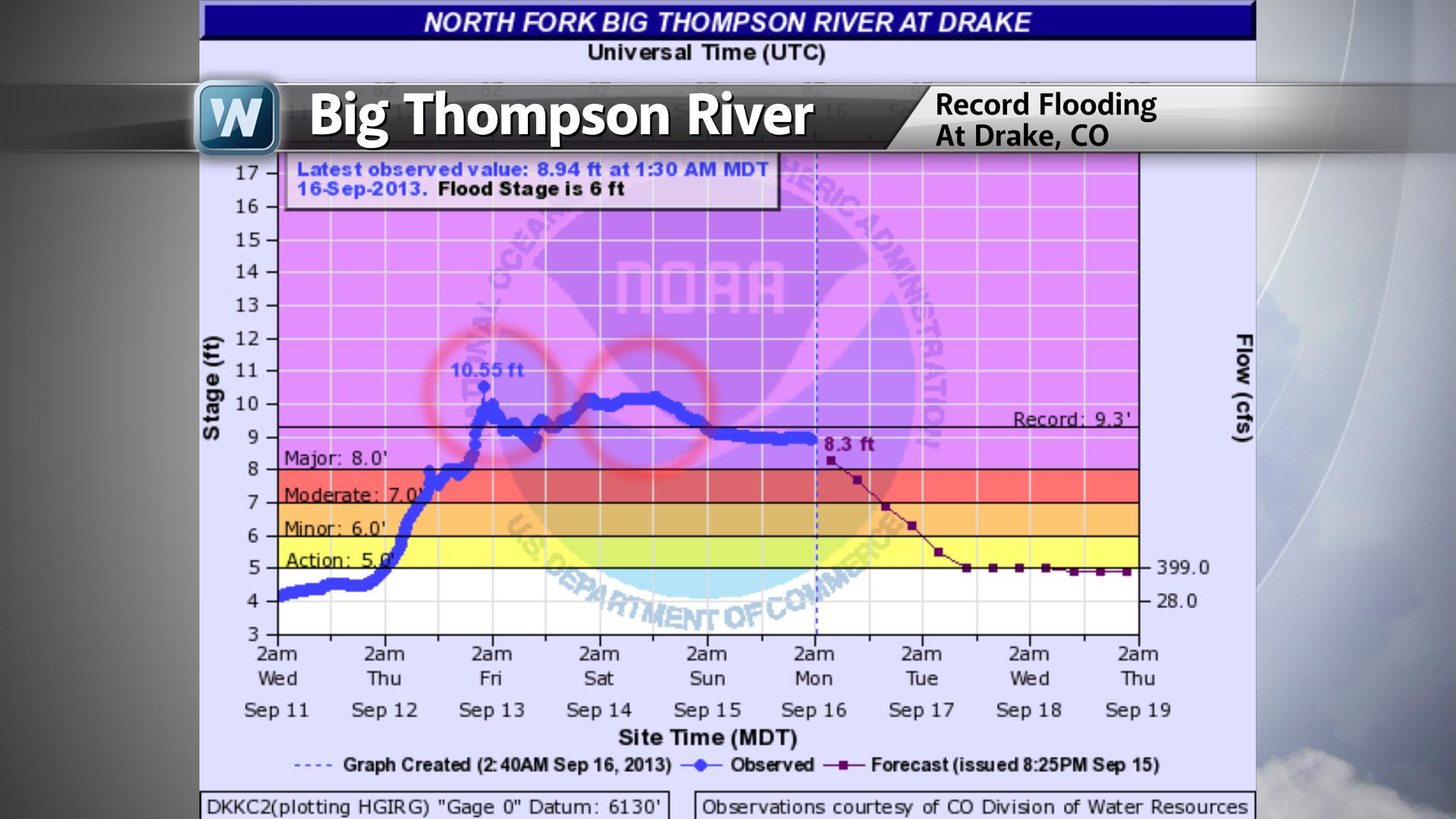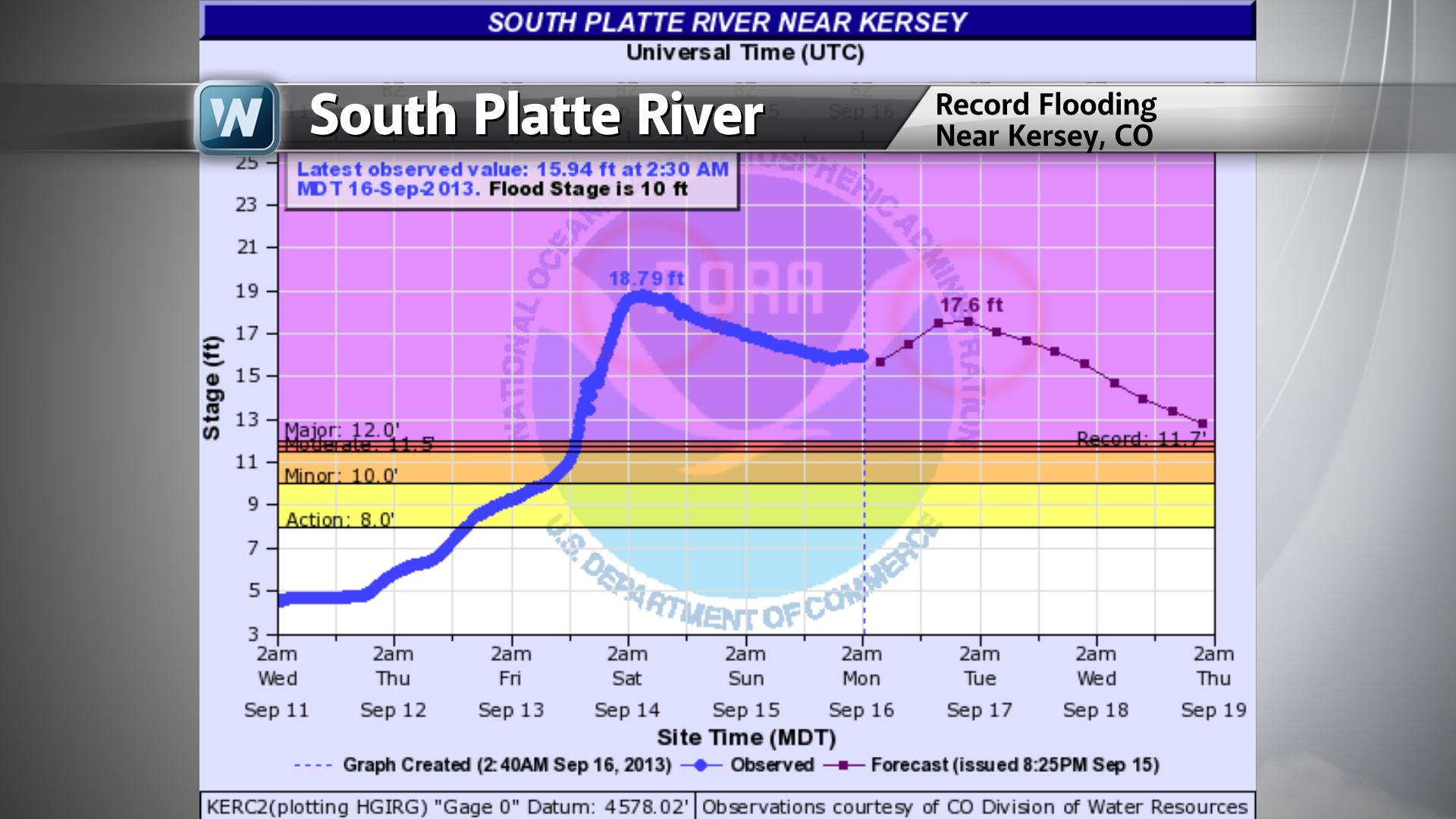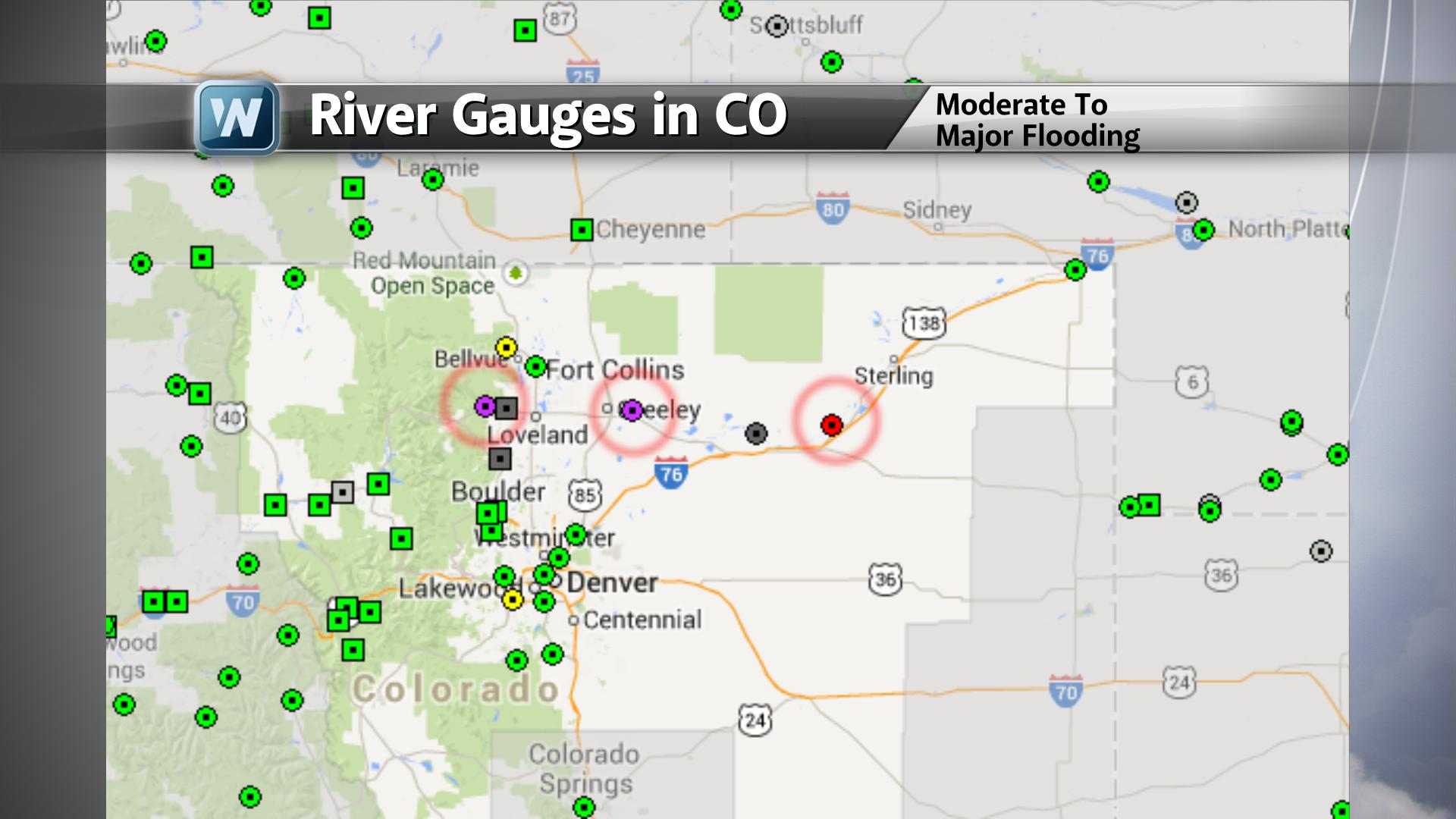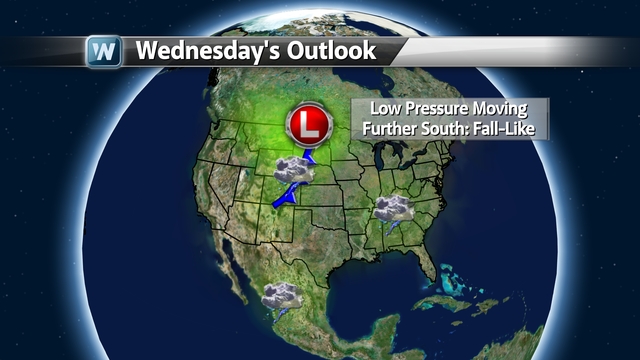Have you ever been away when a big piece of breaking news happens? Maybe didn’t have cellular phone access or something like that? That is how I felt on Saturday, sitting in Amsterdam’s Schiphol airport, waiting to come home to the United States. I hadn’t heard anything about the flooding in Colorado – so it was very heart-wrenching to read posts on Facebook from friends and former co-workers about the flooding in Colorado.
That brings us to the present. There are still rain chances in Colorado & eastern Wyoming, along with New Mexico.
These are the big questions: 1) What is happening now? 2) What are we expecting for rainfall? 3) When will the rain stop.
Let’s start with what’s happening right now…
Flooding.
See those pinkish/purplish circles? Those are flood gauges/river gauges that are seeing major level flooding as of today.
Some of those flood regions are seeing record-level flooding as well (of course, many areas are – but the following are just a few examples of it).
In 1976 there was a catastrophic flood along the Big Thompson River in Colorado. You can read more about it here: http://en.wikipedia.org/wiki/Big_Thompson_River 0r by searching elsewhere, but basically – it was one of the worst flooding disasters the region had ever seen. Until last week.
Check out the river gauges from this morning at the Big Thompson River:

Notice those areas we circled. Two different peaks that were higher than the previous record levels.
Now look at this one, from another river location:

Another peak expected – which would have been a record, but now the record has been eclipsed already. Just incredible.
We are still trying to find a good part of the forecast, like “When will the rain stop for a bit?”
Wednesday there is a cold front moving across the region, so showers (regionally) could be a possibility.
Here are a few details…
The European computer model dries out the area for at least Tuesday, with pockets of showers today and again on Wednesday.
Then drying occurs again surrounding Friday, and possibly Saturday as well.
The general trend is toward drying, however, so we will just ride out any additional isolated rain chances in the meantime.
Stay tuned!
WeatherNation Meteorologist Aaron Shaffer @ashafferWNTV



Aaron, Glad to see your blog post. I was wondering why there was a small lack of coverage of the Colorado flooding at WNTV. “Lack” being a relative term, of course. Not saying you all failed miserably or anything. Of course, I’m somewhat biased, being a Colorado-semi-native, and having gotten bitten by the weather bug in an introductory atmospheric science class at CSU in Fort Collins.
I lived in Colorado in 1976. Much of the press has called this flood the worst since the Big Thompson flood of 1976. But that’s very relative, too. 1976 saw a greater loss of life, but the rain, flood and loss was all in one relatively small geographical area. This current flood is larger than the entire state of Connecticut. The same weather system has flooded Colorado Springs, to Golden, to Estes Park (along and in the mountains) and out to Greeley and further east, many miles into the plains.
As you pointed out, this current flood has exceed the Big Thompson water levels of the 1976 flood, by more than a foot! The good news is that lessons learned and better warnings prevented another large loss of life in that canyon with this current flood.
Colorado is no stranger to flash floods; they are quite frequent there. But they’re usually due to unusually heavy or stalled thunderstorms. This multi-day monsoon-like drenching is virtually unheard of along the semi-arid Front Range. I wonder if this drawing of tropical humid air aloft from the south and the easterly surface flow collision which caused this event is going to be the new normal, thanks to climate change?